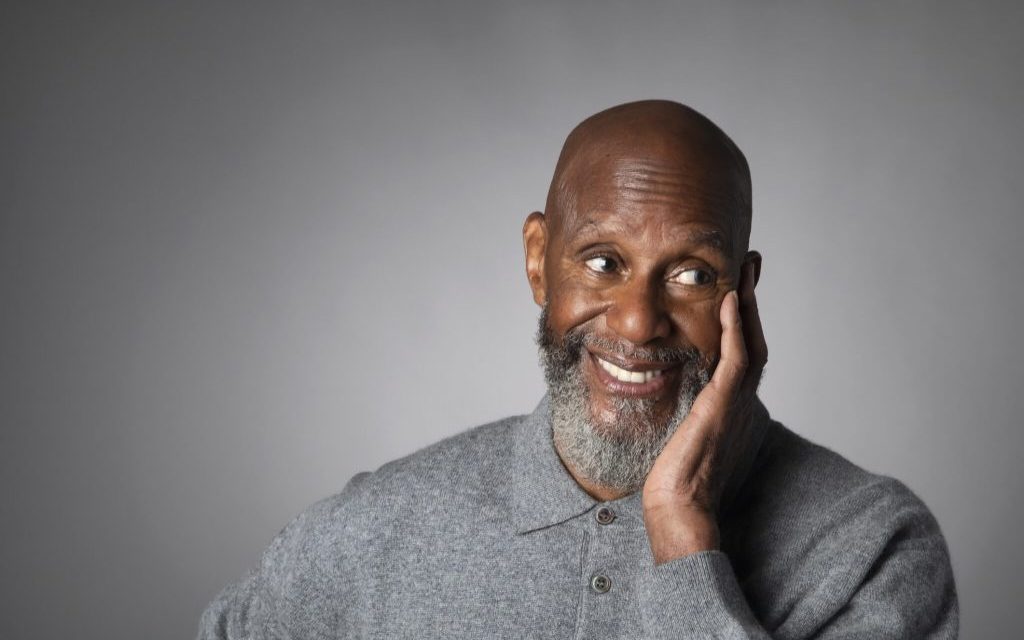by By Marcus Williams, BDO Staff Writer
Many people tend to focus on all health and body challenges that women face in their lifetimes, but the truth is that we all have unique problems that we have to deal with. Sure, women have a lot that they have to cope with, but this is not to say that men don’t have their fair share of less-than-ideal issues.
1. How do I Get Rid of My “Man Boobs”?
You don’t have to be overweight to develop “man boobs.” Hormonal imbalances, particularly low testosterone or high estrogen, can lead to the growth of breast tissue in men, a condition known as gynecomastia. This can also result from certain medications, excessive alcohol use, or underlying health issues like liver or thyroid problems. While it might feel embarrassing, gynecomastia is often treatable. Maintaining a healthy weight through a balanced diet and regular exercise can help reduce excess fat around the chest, which might alleviate the appearance of “man boobs.” Building muscle, especially in the chest area, can also improve firmness and contour. Medical treatments or surgery may be an option for persistent cases, so don’t hesitate to consult a doctor if lifestyle changes don’t provide relief.
2. How do I Get Rid of My Beer Belly?
You don’t have to drink beer to get a beer belly. Men are more likely to gain fat around the waist, so anything fattening can pad the paunch. Unfortunately, belly fat raises the risk of heart disease, especially if your waist size is more than 40 inches. In men, excess visceral fat is associated with relatively low testosterone levels. Maintaining a healthy weight helps maintain a healthy energy level and sex drive, especially with age. But there is good news: The only way to keep weight from creeping up is to cut down on calories and increase muscle mass by exercising. This will promote and fuel the calorie-burning process at a steady rate.
Crash diets are not the way to go. The key is to lose weight slowly, increase exercise and reduce calories. These lifestyle changes will help keep weight off and give you long-term health benefits.
3. I Sweat…A Lot! What’s Wrong with Me?
Men have a higher “sweat output” than women. That’s a fact. But if you always need to wipe your hands or often sweat through your clothes, it may be more than a “guy” thing. It could be excessive sweating, called hyperhidrosis. Emotions or heat can trigger the downpour — or nothing at all. It usually affects the armpits, palms, or soles of the feet.
The following suggestions may help control sweating and body odor:
Use antiperspirant. Antiperspirants containing six to 20 percent aluminum chloride (Drysol, Xerac AC, others) can temporarily block sweat pores. This reduces the amount of sweat that reaches the skin. This type of product may help with minor hyperhidrosis. Apply it to dry skin before going to bed and wash it off when you wake.
Choose shoes and socks made of natural materials. Shoes made of natural materials, such as leather, allow your feet to breathe, which helps prevent sweaty feet. Wear moisture-wicking athletic socks when you’re active. In the store, you can tell which socks are moisture-wicking by reading the packaging.
Keep your feet dry. Change socks or hose one or two times a day. Dry your feet each time. If you wear pantyhose, try the type with cotton soles. Use shoe insoles and foot powder to help absorb sweat. Wear sandals or go barefoot when you can. Or at least slip out of your shoes now and then.
Choose clothing to suit your activity. When you can, wear natural fabrics, such as cotton, wool and silk. These allow your skin to breathe. When you’re very active, you might prefer fabrics designed to wick moisture away from your skin.
Effective treatments are also available through a health professional.
4. I Can’t Perform in the Bedroom Like I Used To. What’s Wrong?
Men may not be eager to discuss sexual troubles, but nearly a third of guys experience problems. This may include a sagging libido, premature ejaculation, or erectile dysfunction (ED). ED means a man is unable to develop or sustain an erection. Risk factors for ED include diabetes, heart disease, neurologic conditions, smoking, circulation problems, and some medications.
Changing your diet to more healthy vegetables and engaging in a consistent workout plan may help. Also, talk to your doctor if you have ED or other sexual problems to help evaluate the problem and recommend treatment.
5. How Do I Get Rid of My Unibrow?
Now here’s a hair problem that affects men of all ages. The same hormones that make your beard grow can make your eyebrows so thick and bushy that they meet in the center. “Unibrow” is the most common reason young men get electrolysis. This procedure uses tiny electric shocks to permanently destroy the hair follicles. Waxing is another way to shape your brows, but it must be repeated every four to six weeks.
6. What Can I Do About My Razor Bumps?
You work hard for that close shave. So it can be exasperating when small bumps mar your otherwise smooth skin. Razor bumps form when hairs curl back on themselves and grow into the skin. They’re most common in Black Americans and men with curly hair. To keep the bumps at bay, take a hot shower before shaving. Apply a thick gel, and always shave in the direction your beard grows.
For men suffering from razor bumps, also known as Pseudofolliculitis barbae, dermatologist Dr. Dina Strachan says to not cut it too short.
I know we like to wear bald fades, but it might be agitating the issue to another level according to the skin care expert. The New York dermatologist recommends that men seek early treatment to avoid acne keloidalis nuchae, another form of razor bumps.
Dr. Strachan adds that men should avoid using a razor to shave. Electric clippers are best for grooming the beard and mustache regions.
And brothers, if your boss is giving you trouble about having a beard at work, you can hit him with the shaving profile letter that you can get from your dermatologist.
7. My Receding Hairline Is Getting Bad. What Can I Do?
The painful truth is most guys have noticeably thinner hair by age 35 and significant hair loss by age 50. The pattern usually begins with a receding hairline and may progress to bald spots on the top of the scalp. Hair restoration surgery offers a way to reduce bald patches. Or you can talk to your doctor about prescription medications for hair loss. But beware of other products that promise the moon.
8. I’ve Been Known To Snore Loudly. Can You Help?
Face the music: Snoring is a surefire way to disrupt your bed partner’s sleep, and men are more likely to be the perpetrators. In most cases, snoring is not harmful. But snoring regularly can chip away at the quality of your own sleep. It can also be a sign of a more serious problem called sleep apnea. Here are some things you can do:
Get enough sleep
Make sure you get the 7–9 hours of sleep that adults need each night, per joint recommendations from the American Academy of Sleep Medicine and Sleep Research Society. Sleep deprivation may increase your risk of snoring. This is because it can cause your throat muscles to relax, making you more susceptible to airway obstruction.
Raise the head of your bed
Elevating the head of your bed by a few inches may help reduce snoring by keeping your airways open. You can use products such as bed risers or pillows to get a little extra height.
Use nasal strips or a nasal dilator
Stick-on nasal strips can be placed on the bridge of your nose to help increase the space in the nasal passage. This can make your breathing more effective and reduce or eliminate your snoring.
You could also try an external nasal dilator, which is a stiffened adhesive strip that’s applied on top of the nose across the nostrils. This can decrease airflow resistance, making it easier to breathe. Internal nasal dilators, which you place inside of your nose, are also available.
Limit or avoid alcohol before bed
Try not to consume alcohol for at least 3 hours leading up to your bedtime. Alcohol can relax the throat muscles, causing snoring.
Alcohol can also disrupt your sleep in other ways. For example, alcohol consumption is associated with shorter amounts of REM sleep, according to a 2020 studyTrusted Source. REM sleep is important partly because memory formation and dreaming occur during this stage.
If you feel snoring is disrupting you or your partner’s sleep, consult a doctor.
9. Why Do I Keep Belching?
Burping may not be the picture of politeness in American society, but in some cultures, a hearty belch shows appreciation for a good meal. In either case, burping a few times after eating is normal. It’s the body’s way of freeing the air that you’ve swallowed.
Natural remedies include:
- Eat and drink slowly. Taking your time can help you swallow less air
- Avoid carbonated drinks and beer. They release carbon dioxide gas
- Skip the gum and hard candy to avoid burping altogether
- Don’t smoke, that will only make your burps worse
- Check your dentures
- Get your body moving
- Treat heartburn.
Frequent burping combined with other symptoms, such as nausea or belly pain, could be a sign of a digestive disorder. Check with your doctor if the problem continues
10. I Have Really Bad Gas. Is There Anything I Can Do?
Perhaps no bodily function has inspired as many jokes as gas. While the sound and smell can be embarrassing, passing gas is harmless. It’s nothing more than air moving through the digestive tract or gas from the breakdown of food by bacteria in your gut coming out – well, we all know where.
Gas facts:
• Most people pass gas 6-20 times a day.
• Beer, soda, beans, and many fruits and vegetables are all likely to gas you up.
• Foods that cause gas differ for each person.
Natural remedies for gas include drinking or eating these herbs:
- Peppermint tea
- Chamomile tea
- Anise
- Caraway
- Coriander
- Fennel
- Turmeric
11. No Matter How Much I Shower, My Body Odor Keeps Coming Back. What Can I Do?
Whether you’re working hard or playing hard, any strenuous activity can result in a strong body odor. The culprit is not sweat itself, but the bacteria that use sweaty skin as a breeding ground. You can fight the bacteria by showering regularly with soap and using antiperspirant. Also, be sure to wash workout clothes often. If body odor persists, it could be in the foods that you eat. Those foods may come out through your skin. So try avoiding smelly foods like garlic and onions.
12. I Don’t Want To Keep Scratching My Genitals, But What Can Be Done About Jock Itch?
You don’t have to be a pro athlete to get jock itch. This fungal infection spreads easily at your local gym — or from another part of your own body. Hands, towels, and stepping into underwear are common culprits. The symptoms include a patchy rash on the groin or inner thighs, along with the telltale itching. It’s treated with nonprescription antifungal creams. Keeping the area dry and avoiding tight clothing helps to avoid a repeat engagement.
13. My Toes are Dry and Stinky. Could It Be Athlete’s Foot?
When the fungus that causes jock itch targets the feet, you have athlete’s foot. Walking barefoot in locker rooms or near pools is the most common way to pick up this infection. Symptoms include itching, burning, blisters, or cracks on the feet and toes.
Tea Tree Oil
Said to have antiseptic, antibacterial, and antifungal properties, tea tree oil (Melaleuca alternifolia) is an essential oil that has a long history of use in Australia as a topical remedy for athlete’s foot.
Sosa
Sosa (Solanum chrysotrichum) is an herb used in Mexico as a remedy for athlete’s foot and related fungal skin infections.
Athlete’s foot may also be treated with antifungal cream. If you have both jock itch and athlete’s foot, be sure to treat them at the same time.
14. My Ingrown Nails Hurt Sometimes. Should I Be Concerned?
Grooming your nails may not be the highlight of your day, but it’s worth your time to get the job done right. Clumsy nail trimming is the top cause of ingrown toenails, which can cause pain, swelling, and infections. The most common mistake is trimming the nails too short. To avoid this, check your drugstore for nail “nippers” that are shaped to follow the natural curve of the nail.
One of the fastest and easiest ways to treat a case of an ingrown toenail is to soak the affected toe in an Epsom salt solution. The best way to do this is to put the toe in water while rubbing the Epsom salt into the affected area.
Using cotton and dental floss is an easier way to remove portions of the nail that may have grown deep into the skin. After you have soaked your feet and used Epsom salt as well, place cotton around the affected area. Once this is done, you can use the dental floss to pull out portions of the nail by flossing it out. Be sure to be gentle and not too harsh on the skin, as this is a sensitive area.
15. No Matter How Much I Brush, I Have Bad Breath. Can You Help?
You probably know that smelly foods and smoking can sabotage your breath. But the most common culprit is bacteria. When you brush your teeth, brush your tongue as well to banish the bacteria that thrive there.
When chewing gum doesn’t work, here are some natural remedies:
- Drink Water. Dry mouth will cause you to have bad breath
- Clean Your Tongue
- Eat Plenty of Fruits and Veggies
- Rinse With Warm Salt Water
- Swish or Drink Apple Cider Vinegar
- Chew on Cloves (And Other Herbs!)
- Brush or Rinse with Tea Tree Oil
If good hygiene doesn’t sweeten your breath, see your dentist and your doctor. Gum disease, dry mouth, or acid reflux could be part of the problem.
16. I’m Losing My Hearing. Can I Save It?
Men are more likely to experience hearing loss than women, and noisy jobs may contribute. Think miners, carpenters, and soldiers. But any loud or continuous noise can damage delicate ear structures, including music piped in through earbuds. On the job, use special ear protection. Keep personal music players at or below 85 decibels (dB). Most can crank up to 105 dB, louder than a motorcycle, wood shop, or snowmobile.
17. I Have an Enlarged Prostate. What’s the First Step?
Along with wrinkles and gray hair, an enlarged prostate is an unavoidable part of aging for many men. The medical term is benign prostatic hyperplasia or BPH, an enlargement of the gland that surrounds the urethra. This growth causes symptoms in about half of men over age 75. As the prostate grows, it may squeeze the urethra, making you feel nature’s call more often. There are strategies and medications to help reduce the symptoms.
One treatment for BPH is called enucleation of the prostate. Using the orange analogy, the goal of this option is to remove the fruit (the adenoma) from the inside while leaving the peel (the capsule) behind. This technique results in a wide-open channel for the urine to pass out of the bladder.
There are different ways to perform a prostate enucleation:
- Through a large open incision called a simple prostatectomy
- Through small incisions and using a surgical robot
- Through the urethra without any incisions called transurethral
Sure, it can be tough to be a guy, but by focusing on living a healthy lifestyle, and checking in with your doctor regularly, you can better handle most of life’s curve balls.











